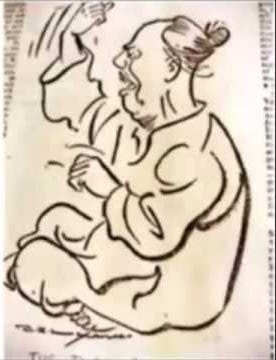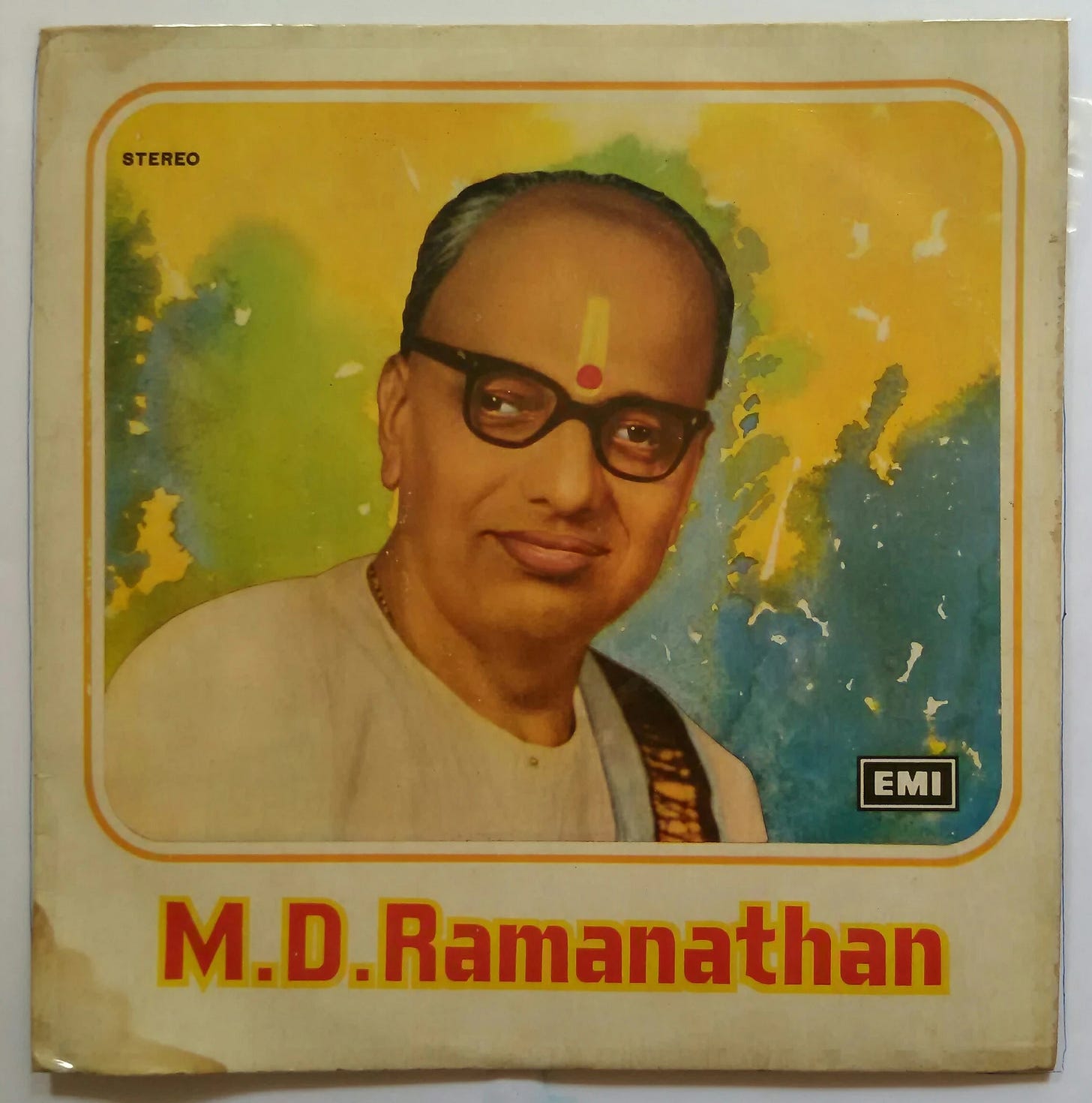MDR and World Music Day
On the occasion of World Music Day, I am re-posting a link to my earlier article on MD Ramanathan, who would have turned 100 on 20 May this year.
Note: My earlier post on “Make music, not war” was slightly modified to correct one wrong video link and to add another.
In 1981, when the Government of Kerala celebrated Onam for the first time on a grand scale, it was decided to invite MD Ramanathan (1923-1984), the South Indian classical vocalist, to feature in the classical music programme. D Appukuttan Nair, a renowned expert in kathakali, kutiyattam and temple architecture, and who designed the koothambalam of Kalakshetra in Chennai, where MDR taught, was requested to get in touch with the musician. MDR seemed reluctant to go at the government's invitation. And perhaps to get them off his back, he decided to act pricey. He replied in Tamil, his mother tongue, that he would come only if he were paid randayiram, or Rs 2000, elongating the second vowel to emphasise the enormity of the amount. That translated into about 115 US dollars as per the prevailing exchange rate. The same year, the organisers paid a leading Malayalam playback singer Rs 30,000.
The organisers must have taken pity on the musician, who seemed out of tune with the times. It was possible that in his earlier programmes, the organisers must have been shortchanging him. They paid him double the amount he asked for. MDR sang to his heart’s content, as evident from the mangalam, the last piece, which ran into several minutes. That was the only concert of MDR that I ever attended. He passed away three years later, not getting the Sangita Kalanidhi, the highest honour in Carnatic music, that he coveted, according to reports. He was widely expected to get the award the previous year.
With the death of MDR ended a unique style of low-pitched singing that was MDR’s own. With no notable students, there was no one to carry forward the tradition. There was hardly any music from MDR available outside of concert halls. Rukmini Devi Arundale, who ran Kalakshetra with a tight fist and iron hand, banned any recording. As for recorded music, there was just one LP record and one EP record. In an interview, someone asked him why there were no more records of him. MDR replied that they came just for two and did not come for more. He pointed to the coffee he was sipping and replied, classical music is like fresh hot coffee. When it is recorded, it will be like coffee from a flask.
After MDR’s untimely death, there was a scramble to collect his recordings. Rukmini Devi advertised, asking people to share their private recordings. Since then, over the last four decades, there has been a huge surge in interest in the music of MDR. About 15 years back, while suffering from a heart ailment, I downloaded over 100 concerts. And more are appearing as if from nowhere. Listening to MDR has been, to me, a meditative experience, much like listening to a long alaap by any dhrupad vocalist or by Bhimsen Joshi or Ustad Amir Khan. I often resort to him.
Please see my earlier post on MD Ramanathan in the link below:



